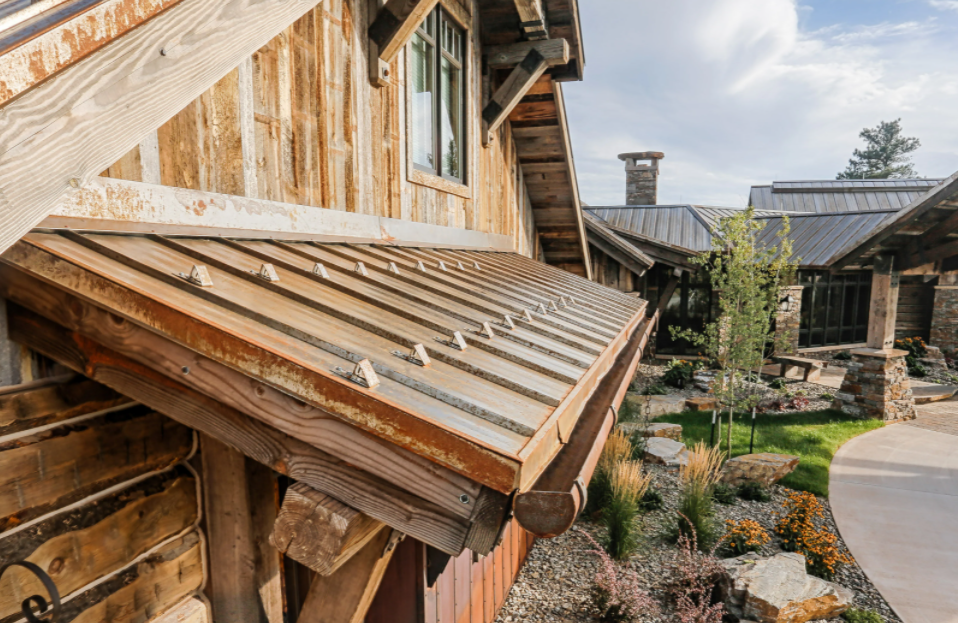When it comes to metal roofs, homeowners often wonder if gutters are necessary. Metal roofing is known for its durability and resistance to water damage, leading some to believe that gutters may not be essential. In this article, we will explore the importance and benefits of gutters for metal roofs. From preventing water damage to maintaining the integrity of your home’s foundation, understanding the role of gutters is crucial for a well-functioning and protected roofing system.

The Purpose of Gutters for Metal Roofs
Gutters play a vital role in directing rainwater away from your home. They are designed to collect water that runs off the roof and guide it safely to the ground, preventing water from pooling around the foundation or causing erosion. While metal roofs are indeed resistant to water damage, they still require an effective drainage system to ensure proper water management and protection of your home’s structural integrity.
Preventing Water Damage
One of the primary reasons why gutters are important for metal roofs is to prevent water damage. Without gutters, rainwater can drip directly off the roof edges, leading to water pooling near the foundation. Over time, this can cause foundation problems, basement leaks, and damage to the exterior walls. Gutters collect the rainwater and channel it away from the foundation, minimizing the risk of water-related issues and preserving the structural integrity of your home.
Protecting Landscaping and Exterior Surfaces
Properly installed gutters also help protect your landscaping and exterior surfaces. Without gutters, water runoff from the metal roof can create unsightly erosion in flowerbeds, damage plants, and erode the soil. The constant exposure to rainwater can also cause staining and degradation of exterior walls, siding, and paint. Gutters collect the water and redirect it away from these vulnerable areas, preserving the beauty and integrity of your landscaping and exterior surfaces.
Preventing Basement Flooding
Basement flooding is a significant concern for many homeowners, and gutters play a crucial role in preventing this issue. When rainwater is not effectively directed away from the foundation, it can seep into the basement, leading to water damage, mold growth, and costly repairs. Gutters help channel the water away from the foundation, reducing the risk of basement flooding and the associated problems that come with it.
Maintaining Roof Longevity
While metal roofs are highly durable, they are not immune to the effects of excessive water runoff. Without gutters, the constant flow of water from the roof edges can cause erosion of the soil and even damage the lower sections of the metal roof itself. Gutters prevent excessive water flow and minimize the impact on the roof, helping to maintain its longevity and performance over time.
Proper Gutter Maintenance
To ensure the effectiveness of gutters for metal roofs, proper maintenance is essential. Regularly inspect the gutters for any debris, leaves, or twigs that can clog the system and prevent proper water flow. Clean the gutters as needed, particularly during the fall when leaves are abundant. Additionally, inspect the gutters for any damage, such as leaks or loose connections, and repair them promptly to maintain their functionality.
Conclusion:
Gutters are indeed necessary for metal roofs, as they play a critical role in preventing water damage, protecting landscaping and exterior surfaces, preventing basement flooding, and maintaining the longevity of the roof itself. By effectively channeling rainwater away from the foundation and directing it to proper drainage areas, gutters contribute to the overall integrity and functionality of your roofing system. Regular maintenance of gutters is crucial to ensure their optimal performance. So, if you have a metal roof, be sure to invest in a well-functioning gutter system to safeguard your home from potential water-related issues and preserve its beauty and structural integrity.



Leave a Reply